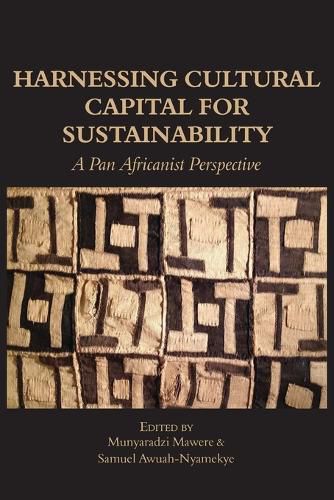Readings Newsletter
Become a Readings Member to make your shopping experience even easier.
Sign in or sign up for free!
You’re not far away from qualifying for FREE standard shipping within Australia
You’ve qualified for FREE standard shipping within Australia
The cart is loading…






This title is printed to order. This book may have been self-published. If so, we cannot guarantee the quality of the content. In the main most books will have gone through the editing process however some may not. We therefore suggest that you be aware of this before ordering this book. If in doubt check either the author or publisher’s details as we are unable to accept any returns unless they are faulty. Please contact us if you have any questions.
This book argues that the basic component of any society’s social security and sustainability is cultural capital and its ability to fully recognise diversity in knowledge production and advancement. However, with regard to African societies, since the dawn of racial slavery and colonialism, cultural capital - indigenous knowledge in particular - has iniquitously and acrimoniously suffered marginalisation and pejorative ragtags. Increasingly since the 1990s, cultural capital informed by African knowledge systems has taken central stage in discussions of sustainability and development. This is not unrelated with the recognition by America and Europe in particular of the central role that cultural capital could and should assume in the logic of development and sustainability at a global level. Unfortunately, action has often failed to match words with regard to the situation in Africa. The current book seeks to make a difference by exploring the role that African cultural capital could and should assume to guarantee development and sustainability on the continent and globally. It argues that lofty pan-African ideals of collective self-reliance, self-sustaining development and economic growth would come to naught unless determined and decisive steps are taken towards full recognition of indigenous cultural capital on the continent.
$9.00 standard shipping within Australia
FREE standard shipping within Australia for orders over $100.00
Express & International shipping calculated at checkout
This title is printed to order. This book may have been self-published. If so, we cannot guarantee the quality of the content. In the main most books will have gone through the editing process however some may not. We therefore suggest that you be aware of this before ordering this book. If in doubt check either the author or publisher’s details as we are unable to accept any returns unless they are faulty. Please contact us if you have any questions.
This book argues that the basic component of any society’s social security and sustainability is cultural capital and its ability to fully recognise diversity in knowledge production and advancement. However, with regard to African societies, since the dawn of racial slavery and colonialism, cultural capital - indigenous knowledge in particular - has iniquitously and acrimoniously suffered marginalisation and pejorative ragtags. Increasingly since the 1990s, cultural capital informed by African knowledge systems has taken central stage in discussions of sustainability and development. This is not unrelated with the recognition by America and Europe in particular of the central role that cultural capital could and should assume in the logic of development and sustainability at a global level. Unfortunately, action has often failed to match words with regard to the situation in Africa. The current book seeks to make a difference by exploring the role that African cultural capital could and should assume to guarantee development and sustainability on the continent and globally. It argues that lofty pan-African ideals of collective self-reliance, self-sustaining development and economic growth would come to naught unless determined and decisive steps are taken towards full recognition of indigenous cultural capital on the continent.